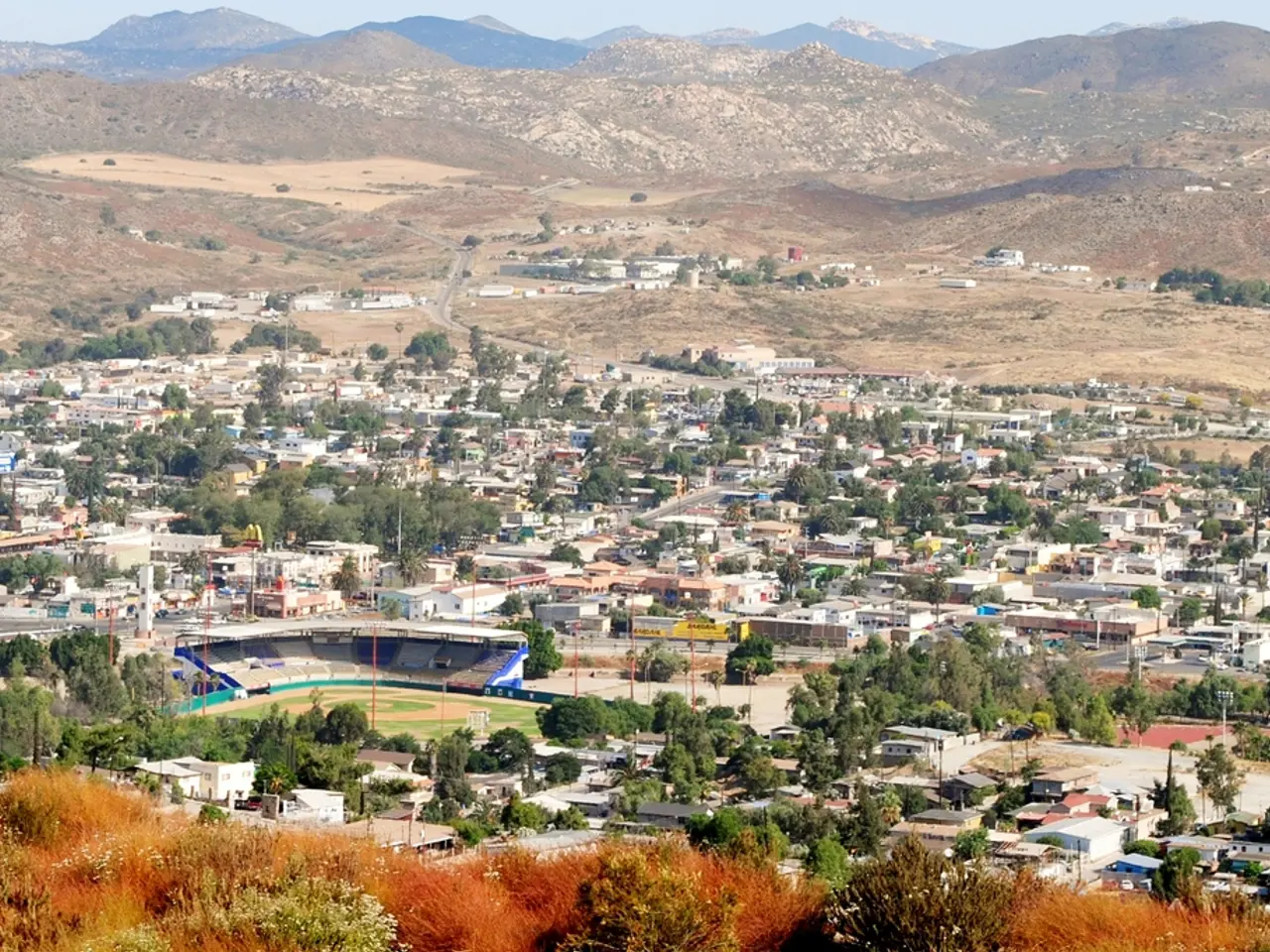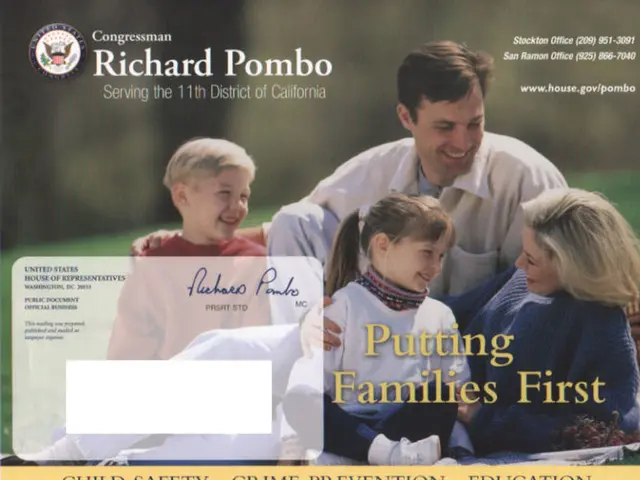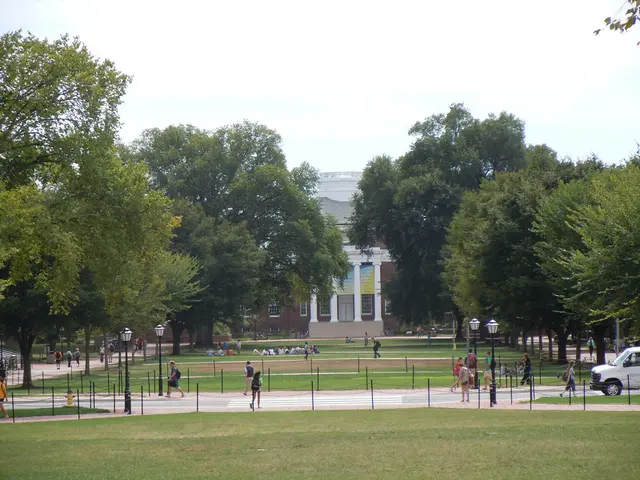Parliament erupts in confrontation over Kharge's accusations of mass deletions in Bihar's voter list
Controversy Surrounds Exclusion of Millions from Bihar's Electoral Rolls
A significant political and legal issue has arisen in India, with the exclusion of approximately 65 lakh (6.5 million) names from Bihar's draft electoral rolls in the Special Intensive Revision (SIR) conducted ahead of the 2025 Bihar assembly elections.
The Election Commission of India (ECI) has refused to disclose the list of excluded voters or detailed reasons for their removal, citing that no law requires publishing a separate deletion list and only mandates publication of the draft rolls and provision for claims and objections. This lack of transparency has sparked widespread criticism and legal challenges.
Opponents argue that the process lacks transparency and is prone to errors or bias, disproportionately affecting marginalized groups like women and Muslim-majority districts. There are concerns these exclusions may disenfranchise eligible voters, especially migrant workers who struggled to submit necessary forms during the SIR.
The Congress President, Mallikarjun Kharge, has demanded a parliamentary debate over this issue, accusing the Centre of tampering with electoral processes in Bihar. He also points out that while Maharashtra added 43 lakh new names during its SIR, Bihar witnessed a significant purge in voter numbers.
The ECI maintains the process is lawful, necessary for purifying rolls, and that all eligible voters will have the chance to rectify omissions during the claims and objections phase that runs until September 1, 2025, before the final rolls are published on September 30, 2025.
However, legal experts argue that while the ECI is within its rights to conduct SIR, the opacity around criteria and the absence of granular public data undermine public trust. Petitions filed by NGOs like the Association for Democratic Reforms (ADR) have questioned the legality and procedure of the ECI’s actions, arguing the Commission lacks jurisdiction to decide citizenship and that the voter deletion exercise challenges constitutional voter rights.
The Supreme Court has intervened, demanding clarity from the ECI and emphasizing that it could step in if there is evidence of mass exclusion without proper justification. The Court urged the ECI to allow "en masse inclusion" and accepted documents like Aadhaar or voter ID for enrolment.
As the issue continues to unfold, opposition parties are preparing for a symbolic march to the Election Commission's office, and Members of the INDIA bloc staged a protest march inside Parliament, demanding a formal debate on the issue before the SIR is finalised. The demand for a debate centers around Kharge's accusation that the government is selectively erasing voter identities to skew electoral outcomes.
Political observers warn that the controversy could be a harbinger of deeper conflicts between the executive and legislative arms in the run-up to the 2026 general elections. The Kharge on Bihar voter list uproar is a constitutional test for both the legislature and the Election Commission, with the outcome potentially shaping India's democratic process. Further hearings and final resolutions are awaited in mid-August 2025.
- The political and legal issue of excluding millions from Bihar's electoral rolls highlights the need for transparency and accountability in policy-and-legislation.
- The Election Commission of India (ECI) should consider disclosing information on excluded voters and the reasons for their removal to ensure public trust.
- Education-and-self-development and personal-growth initiatives can teach individuals about their rights and responsibilities in democratic processes.
- Protests and marches are means of expressing discontent regarding controversial policy matters, such as this voter list issue.
- Online-education resources could help migrant workers understand the electoral system and navigate any difficulties they may face during the registration process.
- Job-search databases might provide alternative employment opportunities for those disenfranchised due to exclusion from the electoral rolls.
- Career-development workshops may empower individuals by equipping them with necessary skills to address and overcome obstacles caused by situations like the voter list controversy.
- General-news outlets play a critical role in keeping citizens informed about political issues, by reporting on current events and providing update on legal challenges.
- The controversy surrounding the voter list could have an impact on the political landscape, potentially influencing the outcome of elections in Bihar and the nation as a whole.
- Migrant workers can benefit from personal support networks and organizations that assist them in overcoming hurdles created by policy-and-legislation controversies.
- Mindfulness practices, such as meditation and deep-breathing exercises, can help individuals stay calm and focused during challenging and stressful times, like dealing with issues related to their voter status.
- Productivity tools, such as apps and planners, can help individuals manage their time effectively while pursuing goals like resolving irregularities in their voter status.
- Learning new skills through skills-training programs can equip individuals with the tools necessary to navigate complex situations like the voter list controversy.
- The voter list controversy raises questions about the integrity of political systems and the role of the executive in shaping democratic processes.
- Lifelong-learning is essential for citizens in a democratic society, as it encourages continued development of knowledge and understanding regarding policy-and-legislation matters.
- Goal-setting strategies can help individuals stay focused on their aims, such as obtaining a new voter ID or developing advocacy skills to address policy issues.
- The controversy surrounding voter lists can create uncertainty and anxiety among the affected individuals, and mental health resources may be needed to support them during this time.
- Sports, such as football, soccer, basketball, baseball, hockey, golf, tennis, mixed-martial-arts, racing, or premier-league, can serve as a distraction from political issues, offering fans an escape from everyday concerns.
- Sports-betting platforms are forums for discussing and predicting the outcomes of sports events, which could offer insight into potential political outcomes.
- European-leagues, like the Champions League, provide opportunities for international collaboration and competition, offering valuable lessons in policy matters and conflict resolution.
- The NFL, WNBA, MLB, and NHL, among other American sports leagues, have faced their share of controversies, demonstrating that even powerful organizations can struggle with complex issues.
- The Masters, Grand Prix, horse-racing, and Serie A, Laliga, and NCAABasketball tournaments could be potential platforms for raising awareness about the Bihar voter list issue or other political matters.
- Auto-racing, such as Formula 1, NASCAR, or IndyCar, can showcase the importance of precision, strategy, and perseverance, traits valued in individuals advocating for their constitutional rights.
- Sports-analysis programs and publications offer objective analyses of various aspects of sports events, which might contain insights relevant to debates regarding policies and legislations.







